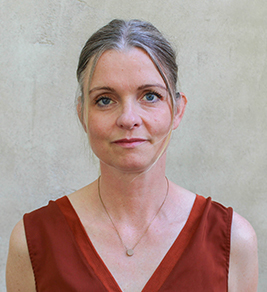Drafting Research and Innovation Strategies for Smart Specialisation (S3) has become an ex ante condition to access the EU Structural Funds for the 2014-2020 program period.
This implies that for the first time, the fundamental goals of territorial cohesion through EU regional policy has become ‘welded’ with the objectives of innovation and competition (Bellini, 2015). The idea of S3 is not new – neither in general nor specifically in the Nordic context. Specialisation in the form of prioritisation of regional strengths and opportunities as well as multi-actor collaboration have been promoted and applied in many Nordic regions. However, there is still lack of understanding of added-value of S3 implementation in the Nordic context.
The current study builds on the priorities identified by the Nordic Thematic Group for Innovative and Resilient Regions:
- Public support mechanisms
- Mobilization and (re)organization of relevant innovation actors within regional innovation systems (i.e. universities, intermediaries etc.)
- ‘Nordic model’ of smart specialization and its added-value
- Green transition
Phase 1, a thorough knowledge and policy overview of smart specialisation in the Nordic Region has been completed and a preliminary report was presented to the thematic group in November 2017.
Attempting to get a systematic overview of how the Nordic regions have adopted and adapted the concept of smart specialisation in their respective regional innovation strategies, it becomes evident that there is a significant knowledge gap for understanding how these countries might position themselves in comparison to their Nordic counterparts. This is particularly relevant for future collaborative cross-border work, as well as for identifying whether there is a specific ‘Nordic model’ of smart specialisation, considering both the presence of natural resources and the governance frameworks in place supporting innovation. Cross-sectoral collaboration has the longest tradition in Sweden and in Finland, implying that the most extensive S3 strategies can be found in these countries. It is worth noting, however, that e.g. Norway although a non-EU member, has nonetheless adopted the S3 approach in some of its regions and counties, despite smart specialisation not being an ex ante conditionality for receiving EU funding. This could be interpreted as a way of recognising and responding to the strengthening of regional advantages across the EU, wishing to remain relevant in R&I in the future. Additionally, this would help clarify the structural difficulties in ensuring regional growth.
From a policy point of view, the relation between the regional smart specialisation strategies and national policy remain an interesting nugget. Considering the cohesiveness, complementarities and dialogue between the different tires of government and regional actors will be investigated further in the analysis following the field study search, which will commence in March/April. Smart specialisation seemingly holds an important key to unlocking regional potential. The question is whether it is a viable future tool, and what new aspects to regional growth it might reveal.
Over the next six months, field study search and analysis will be conducted to find answers to the following questions:
(1) how do the national and regional governmental levels support S3 processes and which tools are in place for this purpose?
(2) what are the enabling and impeding factors influencing the adoption of S3 elements at the regional level?
(3) to what extent does S3 approach aid the understanding of the relevant processes in regional innovation systems and stimulation of necessary synergetic cooperation within it?
(4) as a place-based approach, how does S3 contribute to driving the green growth agenda forward in the Nordic context?
The final report will be launched in late 2018 and will be followed by policy seminars in the Nordic countries.
Discussion paper
The discussion paper provides a knowledge and policy overview of smart specialisation in the Nordic Region. It gives a systematic overview of how and to what extent the Nordic regions have adopted and adapted the concept of smart specialisation in their respective regional innovation strategies.
Related Staff
Related Research Projects
Related Publications
- The status, characteristics and potential of smart specialisation in Nordic Regions
- Implementing Smart Specialisation strategies in Nordic regions
- The Nordic Thematic Group for Innovative and Resilient Regions 2017–2020 – final report
- Synergies between Nordic studies on resilience, digitalisation, smart specialisation and skills development
- Implementing the Concept of Smart Specialisation in the Nordic Countries
- Nordregio News Issue 5 2012: Smart Specialisation for All Regions?
Related News
- Is territorial governance needed in smart specialisation and maritime planning?
- The Geography of Higher Education – Evaluation of the Academy for Smart Specialisation
- New campaign highlights Nordregio research in COVID-19 perspective
- Digitalisation, smart specialisation and regional resilience – new case studies underway
- EU structural funds facing changes
- Nordic thematic group for innovative and resilient regions publishes three discussion papers
- Local smart specialisation: Why is it useful?
- 7 April, Nordregio joins the paper session at AAG Annual meeting in Boston
- 9 February, Nordregio hosts seminars at RegLab’s annual conference




